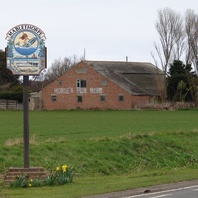
Viking Names
Mablethorpe
Marblethorpe, in the Calceworth Wapentake of Lincolnshire, comes from a likely Continental Germanic male personal name Malbert and Old Norse þorp ‘a secondary settlement, a dependent outlying farmstead or hamlet’.
Read More
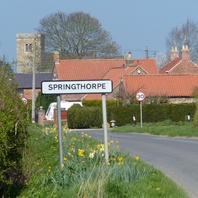
Viking Names
Springthorpe
Springthorpe, in the Corringham Wapentake of Lincolnshire, is an Anglo-Scandinavian compound from Old English spring ‘a spring, a well, the source of a stream’ and Old Norse þorp ‘a secondary settlement, a dependent outlying farmstead or hamlet’.
Read More
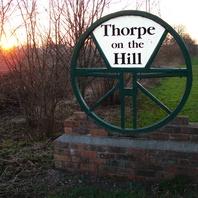
Viking Names
Thorpe on the Hill
Thorpe on the Hill, in the Graffoe Wapentake of Lincolnshire, is a simplex place-name coming from Old Norse þorp ‘a secondary settlement, a dependent outlying farmstead or hamlet’. The affix is self-explanatory.
Read More

Viking Names
Keythorpe
Keythorpe, in the Gartree Hundred of Leicestershire, is an Anglo-Scandinavian hybrid from the Old English male personal name Keyia or Keia and Old Norse þorp ‘a secondary settlement, a dependent outlying farmstead or hamlet’. It was a daughter settlement of Tugby, which it is now a joint parish with. Alternatively, the first element could be the Old English male personal name Cœga, but this seems to be too early of a name to pair with þorp. The Old English element cœg ‘a stone’ has also been suggested; however, the drift ecology does not reflect this postulation.
Read More
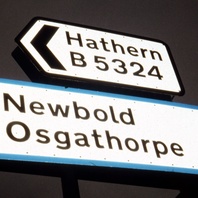
Viking Names
Osgathorpe
Osgathorpe, in the West Goscote Hundred of Leicestershire, comes from the Old Danish male personal name Asgot (Old Norse Ásgautr) and the Old Norse element þorp ‘outlying farm, settlement’. Some later forms of the name show replacement by the Norman male personal name Angod. In the neighbouring Thringstone in Coalville parish, the field-names Ossegodishaug and Hosgothawe (with Old English haga or Old Norse hagi ‘enclosure’) presumably record the same owner of land.
Read More

Viking Names
Southorpe
Southorpe, in the Corringham Wapentake of Lincolnshire, is recorded in Domesday Book as a simplex name from Old Norse þorp ‘a secondary settlement, a dependent outlying farmstead or hamlet’. The prefix was added later to distinguish it from Northorpe.
Read More
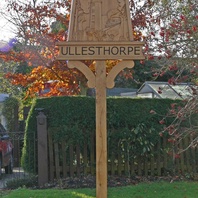
Viking Names
Ullesthorpe
The first element of Ullesthorpe, in the Guthlaxton Hundred of Leicestershire, is the Old Norse male personal name Úlfr (Old Danish Ulf), an original byname meaning ‘wolf’. It was a common name throughout the Viking diaspora. The second element is Old Norse þorp ‘a secondary settlement, a dependent outlying farmstead or hamlet’. The township names that line Watling Street and those to its north-east are predominately English in origin; however, Ullesthorpe, Catthorpe, and Bittesby are the exceptions. It is important to note that although Ullesthope has both an Old Norse specific and generic, Bitteby’s first element is Old English and Catthorpe’s is a feudal affix, which indicate only light Scandinavian settlement in the surrounding area. Ullesthorpe and Bittesby were formally a single land unit which Bittesby was later carved out. Ullesthorpe was likely the dependent village of Bittesby, and now has a narrow reach of land to its west which runs to Watling Street.
Read More
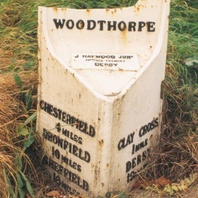
Viking Names
Woodthorpe
Woodthorpe, in the Scarsdale Hundred of Derbyshire, is an Anglo-Scandinavian hybrid name from Old English wudu ‘a wood; or wood, timber’ and Old Norse þorp ‘a secondary settlement, a dependent outlying farmstead or hamlet’.
Read More
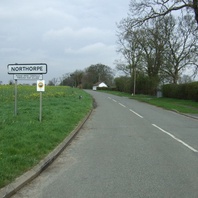
Viking Names
Northorpe
Northorpe, in the West Riding of Lindsey of Lincolnshire was originally a simplex place-name from Old Norse þorp ‘outlying farm, settlement’. Old English norð ‘north, northern’ was prefixed to distinguish Northorpe from Southorpe, which is now a deserted medieval village.
Read More
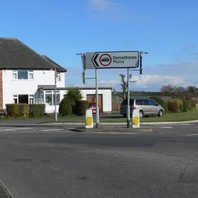
Viking Names
Donisthorpe
Donisthorpe, historically belonging to the Repton and Gresley Hundred of Derbyshire, comes from the Norman male personal name Durand (Middle English genitive singular Durandes) and the Old Norse element þorp ‘outlying farm, settlement’. Place-names containing þorp are thought to be later names, or at least rather longer lived, than those containing the Old Norse element by ‘farm, settlement’ because there are more instances of post-Conquest-type elements combined with þorp than by. Donisthorpe is an example of one of these place-names. Donisthorpe is a joint parish with Oakthorpe and they were both transferred to Leicestershire in 1897. These place-names are close in proximity to Boothorpe and Osgathorpe in Leicestershire demonstrating the density of the Old Norse element þorp across the medieval and modern landscape.
Read More
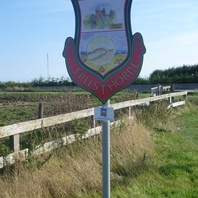
Viking Names
Trusthorpe
Trusthorpe, in the Calceworth Wapentake of Lincolshire, comes from the Old Norse male byname Strútr and Old Norse þorp ‘a secondary settlement, a dependent outlying farmstead or hamlet’. The same personal name appears in Strubby, Lincolnshire, but here the initial S- has been lost through dissimulation.
